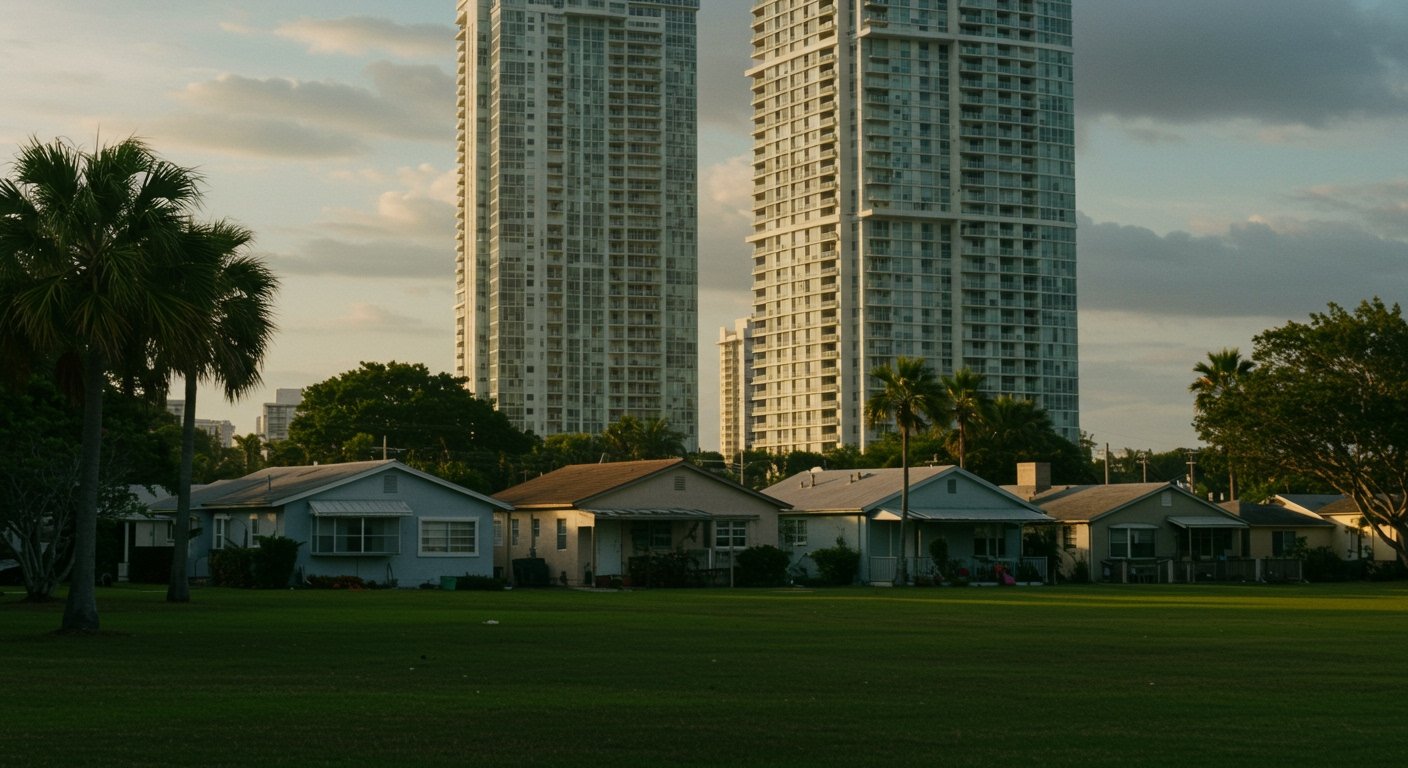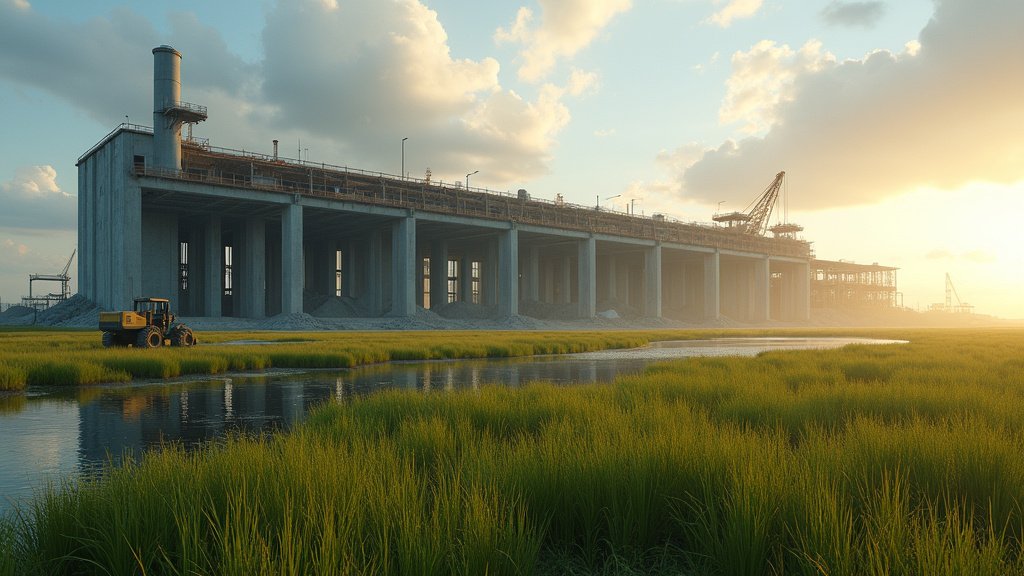North Miami’s $1 Billion Park Development Sparks Community Conflict
A sweeping $1 billion redevelopment initiative proposed for Claude Pepper Park in North Miami is encountering significant resistance from long-time residents of the adjacent Mitchell Lake Estates neighborhood. The ambitious project, spearheaded by Redwood Dev Co, aims to transform the area with a mix of residential towers, commercial spaces, and extensive park enhancements, but it faces a backlash from homeowners concerned about its potential impact on their community’s stability and character.
Located in unincorporated Miami-Dade, the Mitchell Lake Estates area sits directly next to the proposed development site. Residents there have voiced pointed criticisms regarding the scale and scope of the plan, raising questions about everything from potential financial burdens to the disruption of their established quality of life. The clash highlights a recurring tension in rapidly developing South Florida between urban growth ambitions and the desire of existing communities to preserve their neighborhoods.
Details of the Proposed $1 Billion Project
Redwood Dev Co’s vision for the Claude Pepper Park site is comprehensive, aiming to create a dense, mixed-use environment. According to submitted plans, the project encompasses the construction of eight residential towers. Some of these structures are slated to reach heights of up to 18 stories, a significant change for the area’s skyline.
These towers are designed to house a total of 2,193 residential units. The developer has indicated that these units will cater to a mix of residents, specifically targeting workforce, affordable, and senior housing segments. This approach is intended to address pressing housing needs within the region, providing a range of options for different income levels and age groups.
Beyond housing, the project includes substantial commercial components. Plans detail 121,500 square feet of retail space. This retail element is intended to support the residential population and potentially serve the wider community. Specific amenities mentioned in the plans include a grocery store, a medical center, and various restaurants, aiming to create a self-sufficient ‘live-work-play’ environment as envisioned by the developer.
To accommodate the expected influx of residents and visitors, the proposal also includes plans for over 4,000 parking spots. Additionally, a key aspect of the development is the commitment to significant upgrades for Claude Pepper Park itself, promising improved recreational facilities and green spaces for public use.
Sidman, representing Redwood Dev Co, described the project as “transformational.” He articulated the developer’s goal to revitalize the west side of North Miami, turning it into a vibrant area where residents can live, work, and recreate within close proximity. This narrative emphasizes the potential benefits of the development in terms of economic activity, urban renewal, and addressing housing shortages.
Resident Concerns and Opposition
The proposed scale of the development has ignited strong opposition among residents of the adjacent Mitchell Lake Estates. For long-time homeowners like Sherril Marks, who has resided in the neighborhood since 1972, the project represents a potential threat to the stability they have known for decades.
A primary concern voiced by residents is the potential for rising property taxes. The significant increase in property values and assessment that typically accompanies large-scale luxury or even mixed-income developments in adjacent areas could lead to higher tax burdens for existing homeowners, potentially making it difficult for some to remain in their homes, particularly those on fixed incomes.
Beyond financial worries, residents are apprehensive about the disruption the project could cause to their community’s stability. The sheer size of the development, with its tall towers and thousands of new residents, is feared to fundamentally alter the quiet, suburban character of Mitchell Lake Estates. Concerns include increased traffic congestion on local roads, strain on existing infrastructure, and changes to neighborhood dynamics.
Compounding the frustration, some residents have stated that they did not receive adequate or timely notification about the proposed development. This perceived lack of transparency has fueled mistrust and a feeling among some that their voices and concerns were not given proper consideration in the planning process. Community meetings held to discuss the project have reportedly become forums for residents to air grievances and demand more information and input.
Project Timeline and Future Outlook
Despite the resident opposition, the developer is proceeding with its plans, outlining a phased approach for the project. The first phase is slated to begin with the construction of a senior housing building. Redwood Dev Co anticipates that this initial phase will break ground in early 2026.
The path forward for the full $1 billion development remains subject to various regulatory approvals and ongoing community dialogue. The intensity of the resident criticism suggests that the developer and local authorities will need to navigate complex discussions and potential compromises to move the project forward. The situation in North Miami serves as a microcosm of the challenges facing urban centers across the nation as they grapple with balancing the need for development and housing with the desire to preserve the character and stability of existing neighborhoods.
The outcome of the debate surrounding the Claude Pepper Park redevelopment will likely have lasting implications for both the future trajectory of North Miami’s growth and the resilience of its established communities like Mitchell Lake Estates.





